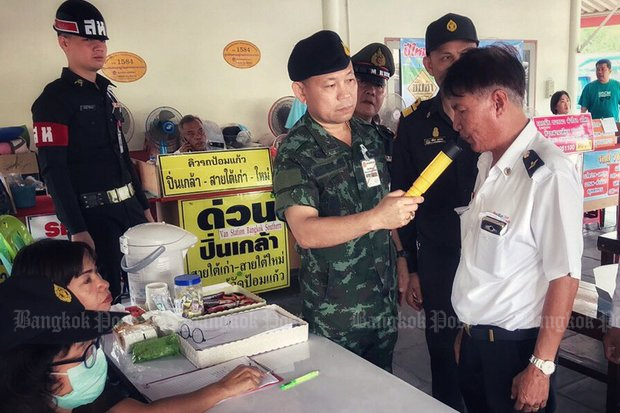
An upsurge in the number of driving offences during the New Year holiday period has prompted officials to keep violators under hospital care and/or surveillance to bring drink-driving under control.
During the so-called "Seven Dangerous Days" from Dec 27 last year to Jan 2, the number of offences reported to the Department of Probation for legal action rose by 3,000 to 9,453 cases, a sharp increase on cases recorded during the same period last year, Department of Probation chief Prasarn Mahaleetrakul said Monday.
Drink-driving topped the list with 8,706 cases, followed by driving under the influence of drugs (701), careless driving (44) and speeding (2).
Although the number of accidents caused by drink-driving during the New Year break dropped by nearly 23%, the overall statistics of traffic violations was unimpressive, he said.
The department, together with public health agencies, has raised concerns over the problem.
"Some 153 of those cited were repeat offenders who had faced drink driving charges within the last three years," Mr Prasarn said.
This behaviour caused about 40% of all deaths during the latest holiday period, officials said.
Mr Prasarn is currently working with Disease Control Department chief Asadang Ruayajin in a pilot project to deal with repeat offenders.
They will be sent for rehabilitation treatment at hospitals under the Public Health Ministry, Dr Asadang said.
Alcoholics will be required to be treated at hospitals managed by the Department of Medical Services.
Offenders who develop severe mental issues as a result of their alcoholism will be treated at hospitals supervised by the Department of Mental Health, Dr Asadang added.
Alcoholics that are seen as "less likely to pose risks" will be required to do community service and attend mandatory courses on traffic laws, Mr Prasarn said.
The department will also continue to use a smartwatch-like electronic monitoring (EM) bracelets on drink-driving offenders to monitor their behaviour and warn authorities of possible relapses.
Previously on Jan 2, the court ordered the department to tag 26 additional drink drivers, bringing the total number of EM wearers to 116.
The offenders' driving licences will be suspended for six months, and offenders are barred from leaving their homes between 10pm and 4am for 15 days, Mr Prasarn said, referring to the rules EM wearers have to follow.
They will also be required to periodically report to their assigned probation officers.